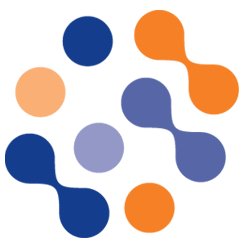Type de contrat : CDD
Niveau de diplôme exigé : Thèse ou équivalent
Fonction : Post-Doctorant
A propos du centre ou de la direction fonctionnelle
The Inria University of Lille centre, created in 2008, employs 360 people including 305 scientists in 15 research teams. Recognised for its strong involvement in the socio-economic development of the Hauts-De-France region, the Inria University of Lille centre pursues a close relationship with large companies and SMEs. By promoting synergies between researchers and industrialists, Inria participates in the transfer of skills and expertise in digital technologies and provides access to the best European and international research for the benefit of innovation and companies, particularly in the region.For more than 10 years, the Inria University of Lille centre has been located at the heart of Lille's university and scientific ecosystem, as well as at the heart of Frenchtech, with a technology showroom based on Avenue de Bretagne in Lille, on the EuraTechnologies site of economic excellence dedicated to information and communication technologies (ICT)
Contexte et atouts du poste
This is a postdoctoral position in the Scool team, which specializes in machine learning applied to sequential decision making. The position is funded by the Inria exploratory action FORMAL.
The goal of the postdoc is to formalize machine learning algorithms in the Lean theorem prover and eventually explore the use of AI to design algorithms and prove theoretical guarantees about them. The starting goal will be to formalize bandit algorithms.
Lean is a programming language and theorem proving assistant.
We can write programs in Lean, but also write theorems and proofs about those programs or any mathematical objects. Mathlib is the mathematical library of Lean. It contains most of the content of a Masters degree in mathematics, in particular many results of probability theory and analysis.
The obvious advantage of formal proofs is correctness: if the system accepts a proof, it is correct.
The real gain is however in what the certainty allows.
Since the computer checks the proofs, many people can work on a project without needing to trust each other.
Furthermore, once an algorithm and its proof are described in a formal language it becomes easier for a machine learning algorithm to interact with it, for example by generating new algorithms or proofs and getting feedback from Lean about their correctness.
Lean is therefore at the center of the recent efforts to use AI to assist in mathematical proofs.
Mission confiée
The goal of the postdoc project is to formalize machine learning algorithms in Lean, starting with bandit algorithms, as well as the tools needed to run them on simulated environments and prove their performance guarantees.
The result will be a library in which we have algorithms and a list of theorems stating that the implementation behaves as expected and providing performance guarantees on several tasks.
The code will be available on a public repository, and we will encourage external contributions.
The role of the postdoc will be to work on the project content itself, but also to generate interest from the community to increase the size of the team working on it.
Principales activités
- Implement bandit algorithms in Lean
- Develop the tools needed to prove theoretical guarantees about them in Lean
- Manage a collaborative project: coordinate contributions, review pull requests
- Disseminate research results (publications, talks at conferences)
Compétences
- Proficiency with Lean or a similar theorem prover
- Knowledge of the mathematical tools needed for machine learning theory, in particular probability theory.
- Ideally, knowledge of machine learning or even bandit algorithms.
- Scientific communication skills (speaking, writing). Proficiency in English.
A candidate who is proficient in Lean and knows basic probability theory, but not necessarily machine learning, would be preferred to a candidate with machine learning skills but without any Lean experience.
Avantages
- Subsidized meals
- Partial reimbursement of public transport costs
- Leave: 7 weeks of annual leave + 10 extra days off due to RTT (statutory reduction in working hours) + possibility of exceptional leave (sick children, moving home, etc.)
- Possibility of teleworking and flexible organization of working hours
- Professional equipment available (videoconferencing, loan of computer equipment, etc.)
- Social, cultural and sports events and activities
- Access to vocational training
- Social security coverage
Informations générales
- Thème/Domaine : Optimisation, apprentissage et méthodes statistiques
- Ville : Villeneuve d'Ascq
- Centre Inria : Centre Inria de l'Université de Lille
- Date de prise de fonction souhaitée : 2026-01-01
- Durée de contrat : 1 an, 6 mois
- Date limite pour postuler : 2025-09-05
Attention: Les candidatures doivent être déposées en ligne sur le site Inria. Le traitement des candidatures adressées par d'autres canaux n'est pas garanti.
Consignes pour postuler
Sécurité défense :
Ce poste est susceptible d’être affecté dans une zone à régime restrictif (ZRR), telle que définie dans le décret n°2011-1425 relatif à la protection du potentiel scientifique et technique de la nation (PPST). L’autorisation d’accès à une zone est délivrée par le chef d’établissement, après avis ministériel favorable, tel que défini dans l’arrêté du 03 juillet 2012, relatif à la PPST. Un avis ministériel défavorable pour un poste affecté dans une ZRR aurait pour conséquence l’annulation du recrutement.
Politique de recrutement :
Dans le cadre de sa politique diversité, tous les postes Inria sont accessibles aux personnes en situation de handicap.
Contacts
- Équipe Inria : SCOOL
- Recruteur :
Degenne Remy / [email protected]
A propos d'Inria
Inria est l’institut national de recherche dédié aux sciences et technologies du numérique. Il emploie 2600 personnes. Ses 215 équipes-projets agiles, en général communes avec des partenaires académiques, impliquent plus de 3900 scientifiques pour relever les défis du numérique, souvent à l’interface d’autres disciplines. L’institut fait appel à de nombreux talents dans plus d’une quarantaine de métiers différents. 900 personnels d’appui à la recherche et à l’innovation contribuent à faire émerger et grandir des projets scientifiques ou entrepreneuriaux qui impactent le monde. Inria travaille avec de nombreuses entreprises et a accompagné la création de plus de 200 start-up. L'institut s'efforce ainsi de répondre aux enjeux de la transformation numérique de la science, de la société et de l'économie.






